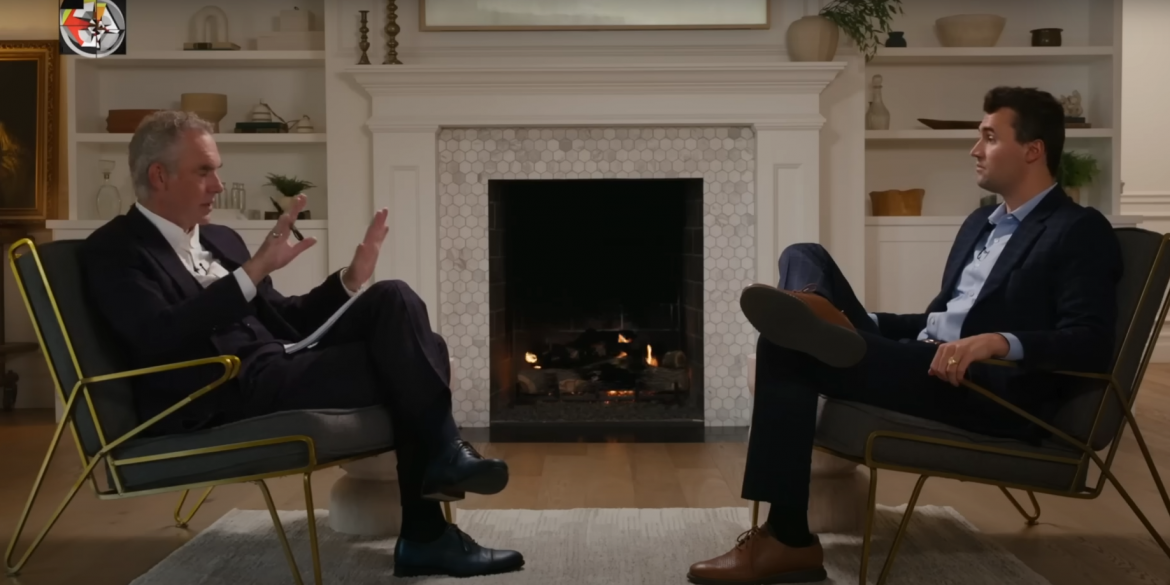Jordan Bernt Peterson is a figure who continues to spark debate, admiration, and criticism. A Canadian clinical psychologist, author, and public intellectual, he has become famous (or infamous, depending on your point of view) for his views on identity, culture, responsibility, and what he perceives as the decline of Western values. Below is a deep dive into who he is, what he says, and why many people pay attention.
Early Life & Academic Roots
- Born: June 12, 1962, in Edmonton, Alberta, Canada.
- Education: He earned a B.A. in Political Science from the University of Alberta, then an M.A., and a Ph.D. in Clinical Psychology from McGill University. Later, he taught at Harvard University as a visiting scholar, and then became a professor at the University of Toronto.
- Academic work: His early research focused on personality, belief systems, myth, religious stories, and how people find meaning. His book Maps of Meaning: The Architecture of Belief (1999) explored how myths and religious structures help shape human experience. Another major book is 12 Rules for Life: An Antidote to Chaos (2018), which became an international best-seller.Insightlopedia+2
Breakthrough into Public View
- Although well-known in academic psychology circles, Peterson rose to global prominence around 2016, especially due to his opposition to a proposed Canadian law (Bill C-16) that expanded protections for gender identity and expression. He argued such legislation would compel speech. This led to both widespread support and fierce opposition. 2zeitgeist.university+2
- One of his more famous interview moments was with Cathy Newman on Channel 4 News (UK), where she pressed him on many issues around gender, patriarchy, and political correctness. The dynamic of that interview—how Peterson handled criticisms, how he responded to sharp questioning—helped solidify his reputation as both a skillful interlocutor and a divisive figure. zeitgeist.university+2Insightlopedia+2
Key Themes in Interviews & Writings
In interviews, public lectures, or debates, several themes regularly come up in Peterson’s message:
- Personal responsibility — He emphasizes that individuals must take ownership of their lives. Discipline, meaning, and purpose are often central. steve-dinneen.com+1
- Order vs Chaos — He often frames life as a struggle between order (structure, rules, tradition) and chaos (uncertainty, moral relativism). He argues too much chaos or too much forced order can both be harmful.
- Free speech / political correctness — Peterson has been a strong critic of what he sees as overreach in political correctness, laws or policies that may force speech, and identity politics. This is one of the areas that got him into the public spotlight. zeitgeist.university+
- Myth, religion, meaning — He draws on religious motifs, mythological archetypes, and psychological symbolism. He believes that modern society has lost some of the meaning-making structures that myth and religion once provided. America Magazine
Recent Events & Controversies
- Health & Mold Exposure: As of mid-2025, Peterson has stepped back from many public engagements due to a serious illness related to mold exposure. His daughter Mikhaila Peterson revealed that he has been diagnosed with Chronic Inflammatory Response Syndrome (CIRS), which has exacerbated other health issues, caused food sensitivities, and forced him to cancel events and appearances.
- Touring / Ticket Sales: Some of his live speaking events have struggled to sell out. For example, a stop in San Francisco for his tour saw many tickets remaining unsold despite earlier anticipation. This has led to discussions about whether his influence is waning in certain circles. San Francisco Chronicle
- “Luciferian elites” and Politics: In interviews and speeches, Peterson has made provocative remarks about elite power structures. At the Alliance for Responsible Citizenship conference in London, he framed Donald Trump’s election and political movements as reactions by working-class people against what he called “Luciferian elites”—progressive, bureaucratic, and ideological forces. These comments have generated both support and strong criticism. The Australian
Interesting Facts & Lesser-Known Details
- Peterson launched Peterson Academy together with his daughter Mikhaila in 2023, investing several million dollars to create an online educational platform emphasizing free speech, personal responsibility, and self-improvement.
- His rise to popularity was partly thanks to online platforms—YouTube, podcast appearances, media interviews—which spread his lectures beyond academia. People found his framing of order, meaning, and responsibility resonated in times of cultural uncertainty. zeitgeist.university+1
- Peterson has acknowledged periods of severe illness and struggles, including difficulties due to benzodiazepine dependency in past years. His health has often been a topic in interviews and posts, revealing the man behind the public persona.
Why Jordan Peterson Connects & Why He Divides
Jordan Peterson’s appeal is strong among many who feel alienated by rapid cultural change, who distrust what they view as censorship or ideological conformity, or who yearn for personal meaning and structure. But his critics argue he sometimes oversimplifies, overlooks nuance, or gives some dangerous legitimization to reactionary or extremist thinking.
His interviews often become lightning rods—not just for what he says, but how he says it: calm, articulate, often challenging. That combination (message + delivery) is part of what makes him both influential and controversial.
Sources
- Peterson, Jordan B. “Maps of Meaning: The Architecture of Belief.” 1999.
- Peterson, Jordan B. “12 Rules for Life: An Antidote to Chaos.” 2018.
- Wikipedia – Jordan Peterson page.
- Interview with British GQ (Helen Lewis, 2018). Insightlopedia
- The “Clinical Psychologist” episode on BBC World Service. BBC
- Recent news about his health (mold exposure, etc.).
- Reporting on his tour ticket sales and public speaking events. San Francisco Chronicle
- Speech at ARC conference, “Luciferian elites” commentary. The Australian




